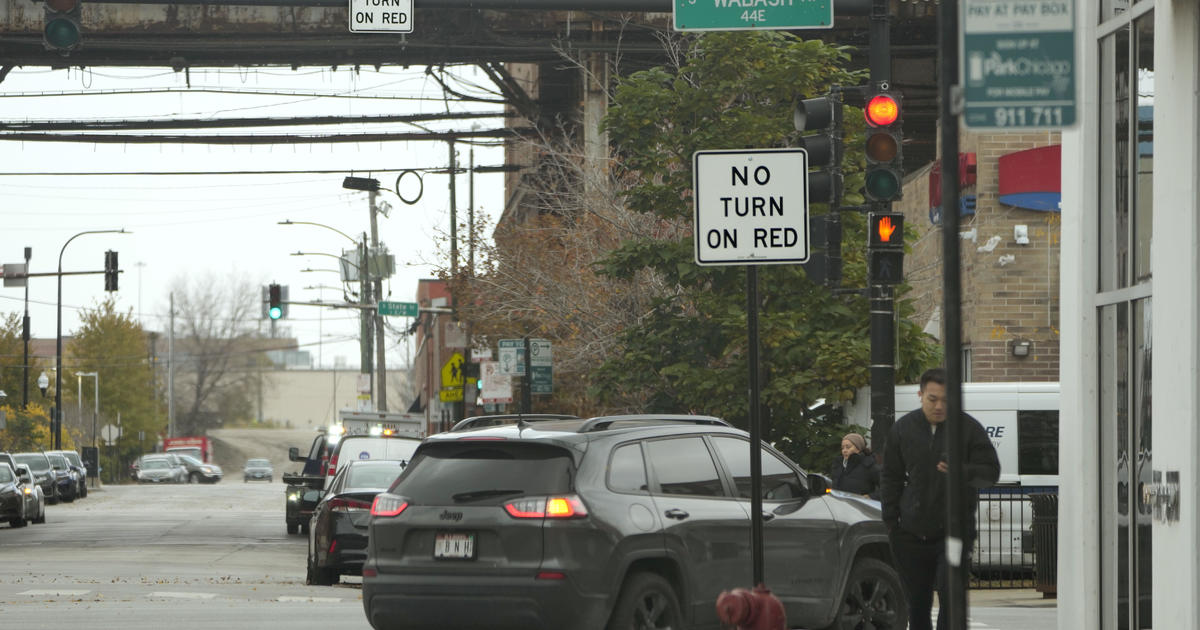Sophee Langerman was on her way to a bicycle safety rally in Chicago’s Lakeview neighborhood in June when a car turning right rolled through a red light and slammed into her bike, which she was walking off the curb and into the crosswalk.
The car was moving slowly enough that Langerman escaped serious injury, but the bicycle required extensive repairs. To Langerman, it’s another argument for ending a practice that almost all U.S. cities have embraced for decades: the legal prerogative for a driver to turn right after stopping at a red light.
A dramatic rise in accidents killing or injuring pedestrians and bicyclists has led to a myriad of policy and infrastructure changes, but moves to ban right on red have drawn some of the most intense sentiments on both sides.
Washington, D.C.'s City Council last year approved a right-on-red ban that takes effect in 2025. New Chicago Mayor Brandon Johnson’s transition plan called for “restricting right turns on red,” but his administration hasn’t provided specifics. The college town of Ann Arbor, Michigan, now prohibits right turns at red lights in the downtown area.



It’s the size of the cars that’s causing the increase.
Wow, you are totally right.
SUVs and pickup trucks do not have to follow the safety regulations of passenger cars.
Passenger cars have rounded pedestrian safe bumpers that are designed to scoop under a pedestrian in a collision, resulting in injuries that are likely to be survivable.
Modern pickup trucks have massive flat grills directly at chest height, which act as a battering ram, and will roll over a pedestrian in a collision, resulting in injuries that are unlikely to be survivable. Pickup trucks and SUVs have large front blind spots that make them more likely to cause collisions than normal cars.
The increasing numbers of pedestrian fatalities is caused by the increasing number and size of pickup trucks and SUVs. This will only change if the feds close the loopholes that allow SUVs to not follow the same regulations as cars.
I think it’s a visibility thing too. Also many distracted drivers.